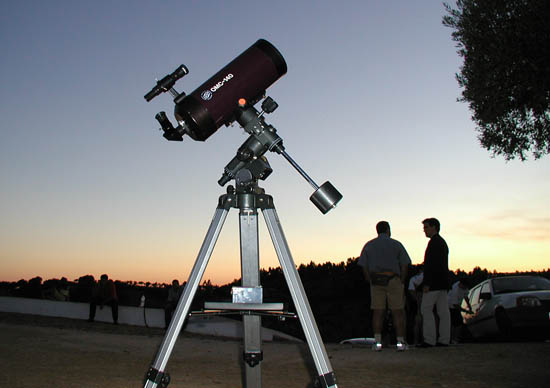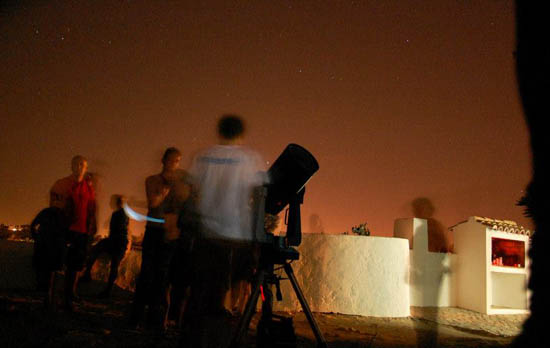
Do you like looking at the night sky? Amateur astronomers are people with the most diverse professions who dedicate themselves to astronomical observations just for the sake of it. They are not the only ones to engage in an activity for pleasure: there are those who delight in fishing, watching birds, collecting tree leaves, fossils, stamps or coins.
Would the reader (or reader) like to learn to locate and identify stars and constellations in the sky? Know how to find Leo, Pegasus, Capricorn or Scorpio?
There are thousands of people in Portugal who can consider themselves amateur astronomers. And these numbers are even higher in more developed countries. The reader (or the reader) could also become an amateur astronomer.
Among amateur astronomers there are those who observe occasionally and those who do so assiduously and know the sky like the palms of their hands. Some started a short time ago and others have been watching the sky for decades. Some only make visual observations and others prefer the photographic record. The variety and depth of knowledge is immense among amateurs. And the word amateur has nothing pejorative.
Professional astronomers are generally PhDs in a particular field of Astrophysics and are dedicated to Astronomy as a profession that is their source of livelihood. They obviously have much deeper theoretical knowledge than amateurs and follow well-defined work schedules. They can access telescopes much more powerful than amateurs, but in most cases they interpret data and do not make visual observations. They lack observational practice and familiar knowledge of the sky, which are typical aspects of amateur astronomers.

Freed from the constraints of professionals, amateurs can choose what they want to observe, for example, planets, the Moon, the Sun, variable stars, double stars, comets, star clusters, nebulae and galaxies. They do it without time limits and by taste, as long as the observation is compatible with their equipment.
It is almost always amateurs who discover unpredictable phenomena. There are currently projects in which PROfessionals and AMadores collaborate in an active way (PROAM projects).
You don't need to have special qualifications to be an amateur astronomer. However, the characteristics of each one's education and profession can also influence the choice of different activities.
And in an association of amateur astronomers you can find all professions. The largest and oldest association of amateur astronomers in Portugal is the APAA (Portuguese Association of Amateur Astronomers), based in Lisbon, accessible in http://apaaweb.com/v2013/ (phone 213 863 702). Exists since 1976 and publishes a magazine.
The amateur astronomer differs from the ordinary curious because he doesn't just read books: he actually observes. Observations can be made with the naked eye, binoculars and telescopes. Of course, with a telescope, you can observe much more, and more spectacularly than with the naked eye or with binoculars, but all this is of no use if the observer does not know the sky with the naked eye, which anyone can do. as long as it is persistent. Therefore, the first step is really to know the sky with the naked eye.
Os books that excite and incite the observation of the sky, with advice and practical examples in plain language, are an invaluable help for anyone wanting to get to know the night sky.
There are several periodic events (free and free) that promote the exchange of information and experiences among those interested. The growing enjoyment of sky observations is further evidenced in the annual public events linked to astronomical observations, such as the Astrofesta and astronomy in summer.
text and photography by Guilherme de Almeida
Science in the Regional Press – Ciência Viva


















Comments